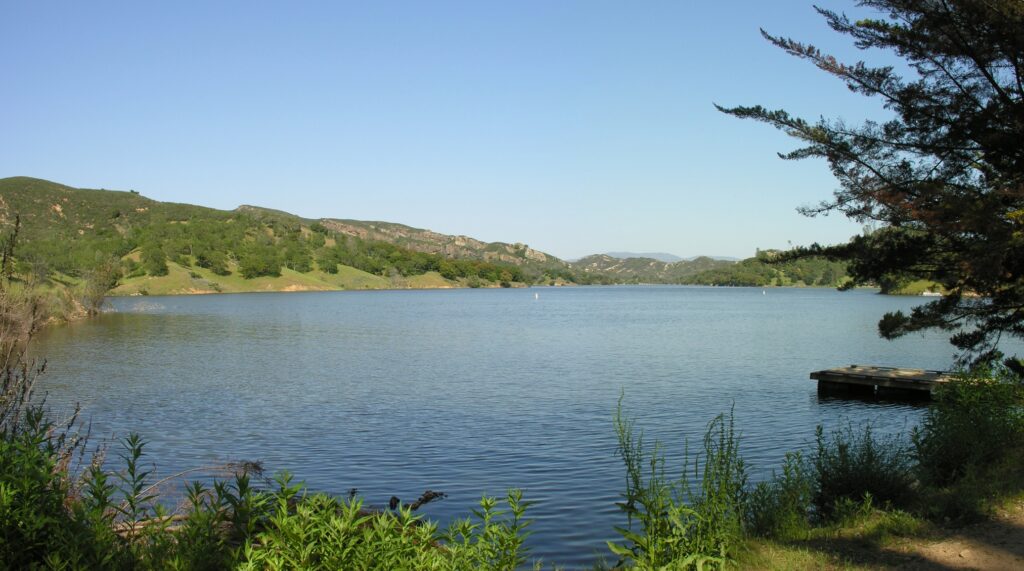Here are SLO County rain, reservoir levels after latest storm
December 22, 2023

Santa Margarita Lake
By KAREN VELIE
Despite several storms that have left San Luis Obispo County with some of the highest precipitation totals for this time of year in decades, local reservoir levels remain flat, though healthy. Generally, around January, when the ground is soaked, rain water begins to replenish the reservoirs.
Climate scientists track rain from July 1 through June 31.
Rainfall totals from July 1 through Dec. 22, along with average yearly rainfall:
Arroyo Grande – 4.23 inches to date – average 14.09 inches
Atascadero – 3.37 inches to date – average 12.06 inches
Lopez Dam – 5.85 inches to date – average 18.48 inches
Los Osos – 4.09 inches to date – average 15.77 inches
Nipomo – 3.64 inches to date – average 12.62 inches
Oceano – 3.90 inches to date – average 12.26 inches
Paso Robles – 3.63 inches to date – average 14.08 inches
Rocky Butte – 22.46 inches to date – average 34.75 inches
San Luis Obispo – 5.02 inches to date – average 16.82 inches
San Simeon – 5.69 inches to date – average 15.12 inches
Santa Margarita – 5.25 inches to date – average 16.96 inches
Shandon –3.25 inches to date – average 8.44 inches
Templeton – 4.70 inches to date – average 13.05 inches
Current Central Coast and major state reservoir levels:
- Santa Margarita Lake at 90.3%, SLO County
- Lake Nacimiento at 55%, SLO and Monterey counties
- Lopez Lake at 95.5%, SLO County
- Whale Rock Reservoir at 100%, SLO County
- Cachuma Lake at 89%, Santa Barbara County
- Gibraltar Reservoir 87%, Santa Barbara County
- Jameson Reservoir 100%, Santa Barbara County
- San Antonio Lake at 64%, Monterey County
- Oroville Dam 67%, Butte County
- Trinity Lake at 51%, Trinity County
- Don Pedro Reservoir at 81%, Mariposa County
- New Malones Lake at 82%, Calaveras County
- Shasta Dam at 67%, Shasta County
- San Luis Reservoir at 54%, Merced County






The comments below represent the opinion of the writer and do not represent the views or policies of CalCoastNews.com. Please address the Policies, events and arguments, not the person. Constructive debate is good; mockery, taunting, and name calling is not. Comment Guidelines